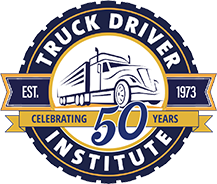How Does Inflation Impact Truck Driving

For decades, the trucking industry has upheld the backbone of the country’s economic inner workings. Being so deeply and historically entwined with American commerce, it doesn’t come as a surprise that economic fluctuations have significant ripple effects on the trucking industry and the hardworking individuals operating within it.
The critical question, “How does inflation impact truck driving?” is multifaceted. However, understanding the answers can help current and potential truck drivers parse through the shifting circumstances that define their roles within the transportation industry.
Current Inflationary Pressures on the Economy
Inflation, in general, is characterized by the overall rise in the price of goods and services in a given economy and the correlative decrease in purchasing power of consumers within that economic domain. Inflation is calculated using the Consumer Price Index, or CPI, which tracks the average price changes of goods and services over time.
Under normal conditions, inflation is a natural phase intrinsic to a healthy, growing economic cycle. However, due to various recent circumstances, notably the global pandemic, inflation rates have worried industries and consumers across the board for the past few years.
Transitory inflation caused by COVID-19 caused the CPI to spike 5.4% in mid-2021, as consumer demand blossomed while supply chain disruptions and labor shortages remained bottlenecked. This sharp increase in demand directly following intensive global shutdowns caused economic effects that are likely to last for years to come, the outcome of which is still uncertain.
How Does Inflation Impact Truck Driving?
How do these macrocosmic economic trends percolate into the transportation industry? What disruptions will carriers, drivers, and customers experience with higher inflation rates?
Inflation Exacerbates the Pressing Shortage of Truck Drivers
The country’s widespread need for truck drivers has been an ongoing issue for quite some time, with inflation further complicating the preexisting shortage. Truckers are in short supply due to a host of related demographic, social, and financial circumstances, which has a profound relationship to current inflation rates.
Because certain trucking carriers fail to adjust their pay rates quickly, inflation means that truckers are getting paid the same while the cost of living continues to rise. While inflation historically causes workers of all industries to demand an increase in wages, unfortunately, interest rates and financing costs rise in tandem. As a result, even if carriers quickly pay their employees better, actual purchasing power continues to decline.
Trucking salaries are generally considered robust—sometimes upwards of $150,000 a year—don’t mean as much contextually during periods of high inflation. This widening gap between wages and growing expenses can divert potential drivers towards other careers with higher salaries.
Inflation Leads to Spikes in Fuel Prices
Inflation affects all the necessary expenses associated with trucking, but one line item hits the industry harder than the rest—fuel. When inflation rates rise, diesel and gasoline exhibit particularly volatile price fluctuations, which impacts the transportation sector on a fundamental level.
Because of inflation, traditional hauls will no longer bring in the revenue that carriers have grown accustomed to, with higher fuel costs canceling any potential profits. As a result, companies may delay hauls to cut costs or increase their rates, assuming their contracts even allow it.
While larger fleets may receive temporary fuel subsidization, most trucking companies are too small to qualify for aid. As a result, these smaller businesses will have to make hard decisions to decide what services are cost-effective and will likely have to pass on contracts they’d otherwise fulfill. In addition, fuel prices and fuel taxes remain higher today than they were pre-pandemic, suggesting that the effects of inflation remain in play.
Inflation Increases Costs and Reduces Profit Margins
Asking the question, “How does inflation impact truck driving?” is akin to asking how inflation impacts goods and services in general. Beyond fuel, inflation affects all goods measurable within the CPI, including the other raw materials necessary to build, maintain and operate fleets. For example, inflation causes the base costs of auto parts and manufacturing equipment to skyrocket simultaneously.
Everything from aluminum and steel to engines and transmissions is more expensive during periods of high inflation, meaning the price of purchasing and maintaining a rig can increase by tens of thousands of dollars in just a few months. This can significantly affect a carrier’s bottom line, especially those with smaller fleets and tighter margins.
The Projected Future of Inflation and Trucking
Though inflation rates in 2022 were the highest on record since the 1980s, they have been steadily falling for ten consecutive months. This nascent decrease is due to prudent efforts by the Federal Reserve targeting a CPI of around 2-3%, accompanied by latent pandemic supply chain issues beginning to stabilize globally.
Though the future remains uncertain, many experts suspect that inflation rates will continue along a gradual downward trajectory this coming year. This information suggests that trucking will regain some headway on profit margins due to falling material, maintenance, and financing costs. In addition, the transportation industry will also see the benefits of slightly falling crude oil and gasoline prices, meaning lower overheads and operating expenses.
No matter the financial weather, freight movement across the country will continue to play a fundamental role in the national economy—as it has for decades. One of the major appeals of the industry is that despite inflation rates and economic trends, dedicated truckers will always be in demand. The job security of trucking comes with a lifetime guarantee; the future of truckers is unquestionably bright.
Steer the Future of Trucking With TDI
TDI is not only here to help you answer the question, “How does inflation impact truck driving?” but rather, “How can I thrive as a trucker despite fluctuating economic conditions?” Since 1973, our CDL training programs have put students on the road toward stable and engaging work opportunities in the transportation industry.
With over 86% job placement success, TDI graduates have the confidence, hard skills, and professional assets to flourish—no matter what. Start your journey to becoming a truck driver by learning more about our available programs and getting in touch today.
Get Started
Get your Class A CDL in our friendly, supportive CDL training program. TRAIN with experienced instructors – multiple good-paying, secure job choices with benefits available for eligible graduates. EARN $700 – $1000+ / week to start as a truck driver. Get started today by filling out the form below. We look forward to hearing from you!



